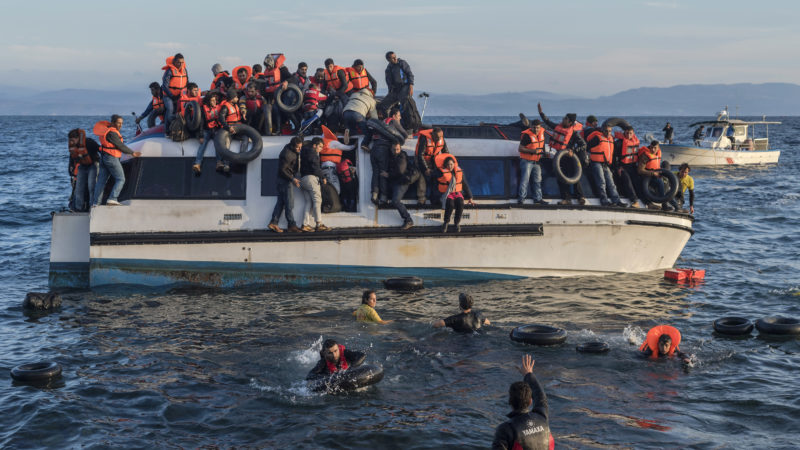Nearly three-quarters of EU countries saw an increase in modern slavery risk last year, with the UK moving from low to medium risk.

A rise in modern slavery risk in Britain and across the continent is the inevitable result of ‘Fortress Europe’, a charity has said.
Nearly three-quarters of EU countries saw an increase in modern slavery risk last year, according to the annual Verisk Maplecroft Modern Slavery Index (MSI), released yesterday.
A slight rise in the UK pushed the country out of the ‘low risk’ category, and into ‘medium risk’.
Owen Espley, Labour Rights campaigner at War on Want said:
“The rise in modern slavery and extreme exploitation of migrants across the EU is an inevitable consequence of ‘Fortress Europe’. Irregular workers are often afraid to approach the authorities to complain about exploitation through fear they’ll be detained or deported, and treated as criminals.”
War on Want blamed harsh immigration controls, complex supply chains, weak labour rights enforcement, and the rise of precarious contracts across the EU for creating conditions where “the exploitation of migrant workers is inevitable”.
Espley said:
“This is creating a race to the bottom that will harm everyone. Labour rights enforcement must be separated from immigration control. Politicians must defend labour rights for everyone whatever their immigration status.”
His comments come as the National Crime Agency admitted yesterday that modern slavery and human trafficking in the UK is “far more prevalent than previously thought.”
There are more than 300 live policing operations currently underway involving modern slavery, the BBC reported, with cases affecting “every large town and city in the country”.
“The more we look, the more we find,” the NCA’s vulnerabilities director Will Kerr told the Broadcaster.
According to Verisk Maplecroft, the rise in modern slavery risk is directly linked to the refugee crisis. Sam Haynes, Senior Human Rights Analyst at the company, said:
“The migrant crisis has increased the risk of slavery incidents appearing in company supply chains across Europe. It is no longer just the traditional sourcing hotspots in the emerging economies that businesses should pay attention to when risk assessing their suppliers and the commodities they source.”
The MSI found the five EU countries with the highest modern slavery risk levels to be Romania, Greece, Italy, Cyprus and Bulgaria – key entry points for migrants into the region, who are often extremely vulnerable to exploitation.
The research, which assesses 198 countries on the strength of their laws surrounding modern slavery, the effectiveness of their enforcement and the severity of violations, shows a deterioration in safety in a total of 20 countries across the bloc.
The situation in Romania is worsening quicker than any other country globally, with the eastern European country falling 56 places in the ranking in just one year.
Thulsi Narayanasamy, Senior Programmes Officer (Asia and the Pacific) at War on Want said the MSI helped highlight the risk and prevalence of the most extreme forms of slavery – such as child labour, bonded labour, forced servitude. But she said the public must not forget the more normalised ‘daily exploitation’ within international supply chains, which “rely on a fundamentally unjust international division of labour”.
She said:
“Farmers who grow our food, garment workers who make our clothes, are in a critical situation every day, of working in difficult or dangerous conditions and are not earning enough to feed themselves. If garment workers – overwhelmingly women and people of colour – are struggling with malnutrition while working 13 hour days 7 days a week for Zara or GAP, we must acknowledge that the problem is systemic. Change cannot come until those who drive and disproportionately benefit from the system – big business – can be held accountable for their complicity in labour exploitation.”
Charlotte England is a freelance journalist. Follow her on Twitter.




One Response to “Rise in modern slavery the ‘inevitable consequence of Fortress Europe’”
Dave Roberts
Are you suggesting open borders?